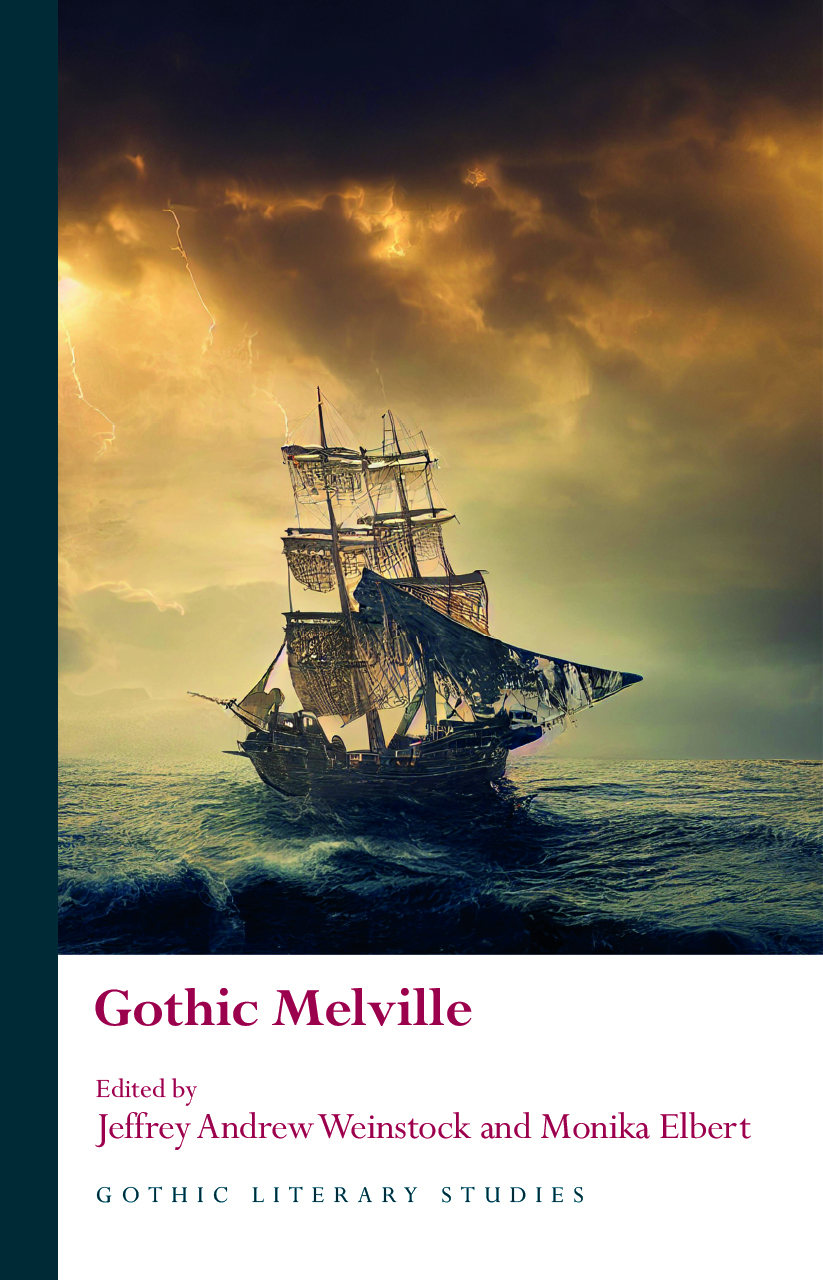Gothic Melville
Editor(s) Jeffrey Andrew Weinstock,Monika Elbert
Language: English
Genre(s): Literary Criticism
Series: Gothic Literary Studies
- September 2024 · 304 pages ·216x138mm
- · Hardback - 9781837721474
- · eBook - pdf - 9781837721481
- · eBook - epub - 9781837721498
In a famous review of Nathaniel Hawthorne’s Mosses from an Old Manse, Herman Melville took the critics to task for missing the darkness as the heart of Hawthorne’s writing – a blackness ‘ten times black’, as Melville put it, that fascinated him. Ironically, Melville has been subject to the same treatment by critics who have in large measure steered clear of Melville’s own darkness. The contributors to Gothic Melville reveal that, if Hawthorne’s darkness is ten times black, then Melville’s is a hundred times so, as his works repeatedly raise questions about what the truth is or if truth exists at all.
This edited collection of scholarly essays makes up for the critical neglect of Melville’s Gothicism by arguing that the Gothic is so extensively interwoven into the fabric of his writing that Melville must at last be recognised as among the genre’s most important practitioners.
‘This is a bracing, heady, invaluable collection of essays that fulfils a crucial gap in Melville studies. It allows the reader to understand, as they should, that Melville is one of the foundational authors of the American Gothic. The wide-ranging approaches here reflect the profound vitality of the Gothic and Melville’s hectic genius at once.’
David Greven, Professor of English at the University of South Carolina
‘Americanists have long needed a comprehensive study of Melville’s Gothicism. In Gothic Melville, Jeffrey Andrew Weinstock and Monika Elbert have met that need, bringing together thirteen fresh, informed, illuminating essays on a wide range of the author’s Gothic writings – from Moby-Dick to “The Encantadas”.’
Christopher Sten, Professor Emeritus of English and American Literature, George Washington University
Notes on Contributors
Introduction: Dead, Blind Walls: Melville’s Gothicism
Jeffrey Andrew Weinstock and Monika Elbert
ECOGOTHIC
‘“The Encantadas,” Enchantment, and Spaces Outside History’
Lisa West
‘“All dripping in tangles green”: The Ecogothic Vision of Melville’s John Marr and Other
Sailors with Some Sea Pieces’
Steve Bellomy
‘“If there be no God”: Materialism and the Naturalist Gothic in Clarel’
Elizabeth Adams
BODIES AS MATTER
‘Attack of the “Undoffable Incubus”: The Problem of Art as Body in Herman Melville’s Pierre’
Michael Schwartz
‘Those Who Eat and Those Who Get Eaten: Cannibalism and Capitalism in Melville’s Typee and “The Paradise of Bachelors and the Tartarus of Maids”’
Jeffrey Andrew Weinstock
‘”The Body Suspended”: The Gothic Corporeality in Billy Budd’
Christopher Love
DEMOCRACY AND TYRANNY
‘The Gothic and Radical Democracy in Melville’s Benito Cereno’
Eric Wolfe
‘The Confidence-Man and the Cynical Gothic’
Craig Stensrud
‘Ahab as Gothic Villain’
Jonathan Cook
‘Sunday in the Office with Bartleby: Gothic Naturalism on Wall Street’
Wendy Ryden
GENDER AND GOTHIC RELATIONSHIPS
‘Crossing ‘the Deadly Space Between’: Melville’s Queer Gothic’
Gale Temple
‘Gothic Vacancies: The Missing Women in Melville's Works’
Monika Elbert
‘“By their very contradictions they are made to correspond”: Symbolic Abjection and Gothic Convention in Herman Melville’s Pierre’
Abigail Boucher and Daniel Jenkin-Smith
Author(s): Jeffrey Andrew Weinstock
Jeffrey Andrew Weinstock is Professor of English at Central Michigan University. He is the Los Angeles Review of Books editor in charge of horror, and the founder and director of the Society for the Study of the American Gothic.Author(s): Monika Elbert
Monika Elbert is Professor of English and Distinguished University Scholar at Montclair State University. She is the editor of the Nathaniel Hawthorne Review.

